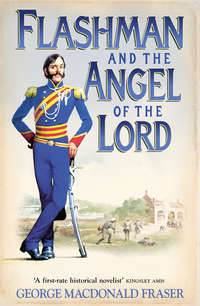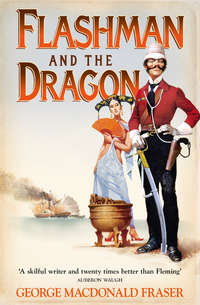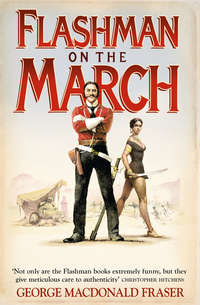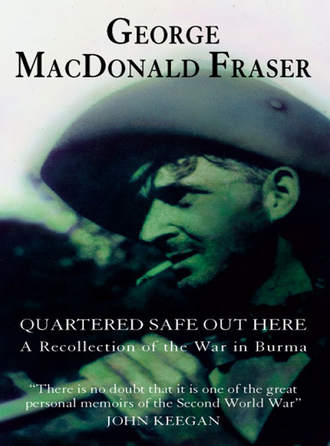
Полная версия
Quartered Safe Out Here

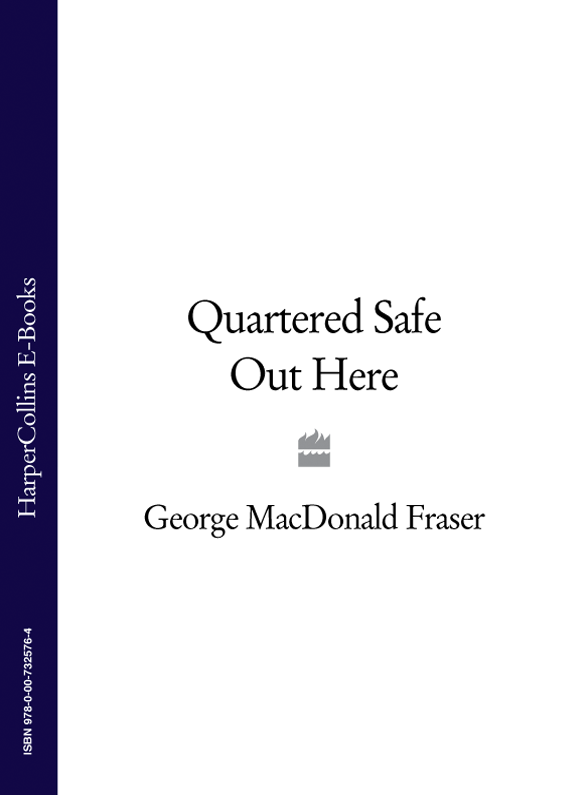
George MacDonald Fraser
QUARTERED SAFE OUT HERE
A Recollection of the War in Burma
with a new Epilogue: Fifty Years On

DEDICATION
FOR JACK, ANDREW, HARRY, AND TOM,
SOME DAY,
THE TALE OF A GRANDFATHER
EPIGRAPH
You may talk o’ gin and beer
When you’re quartered safe out here,
An’ you’re sent to penny fights an’ Aldershot it,
But when it comes to slaughter
You will do your work on water,
An’ you’ll lick the bloomin’ boots of ’im that’s got it.
RUDYARD KIPLING, Gunga Din
CONTENTS
Cover
Title Page
Dedication
Epigraph
Introduction
Chapter 1
Chapter 2
Chapter 3
Chapter 4
Chapter 5
Chapter 6
Chapter 7
Chapter 8
Chapter 9
Chapter 10
Chapter 11
Chapter 12
Chapter 13
Chapter 14
Chapter 15
Chapter 16
Chapter 17
Chapter 18
Epilogue: Fifty Years On
Glossary
About the Author
Author’s Note
Praise
Other Works
Copyright
About the Publisher
INTRODUCTION
It is satisfying, and at the same time slightly eerie, to read in an official military history of an action in which you took part, even as a very minor and bewildered participant. A coloured picture of men and guns and violent movement comes between the eye and the printed page; smells return to the nostrils, of dusty heat and oil and cordite smoke, and you hear again the rattle of small arms and crash of explosions, the startled oaths and the yells of command. And if the comparison is a humbling one, it is worth making if only to show how dehumanised military history has to be.
By rights each official work should have a companion volume in which the lowliest actor gives his version (like Sydenham Poyntz for the Thirty Years’ War or Rifleman Harris in the Peninsula); it would at least give posterity a sense of perspective.
For example, on page 287 of The War Against Japan: volume IV (The Reconquest of Burma), it is briefly stated that “a second series of raids began … and—Regiment suffered 141 casualties and lost one of its supporting tanks …”
That tank burned for hours, and when night came down it attracted Japanese in numbers. We lay off in the darkness with our safety catches on and grenades to hand, watching and keeping desperately quiet. The Japs milled around in the firelight like small clockwork dolls, but our mixed group of British, Gurkhas, and Probyn’s Horse remained undetected, although how the enemy failed to overhear the fight that broke out between a Sikh and a man from Carlisle (someone alleged that a water chaggle had been stolen, and the night was briefly disturbed by oaths in Punjabi and a snarl of “Give ower, ye bearded booger!”) remains a mystery. It was a long night; perhaps memory makes it longer.
Or there is Appendix 20, an account of Deception Plan “Cloak”, whereby General Slim deceived the Japanese by a fake crossing of the Irrawaddy. He confused Nine Section, too; we dug in at no fewer than three different positions in as many hours, Grandarse lost his upper dentures on a sandbank, little Nixon disturbed a nest of black scorpions in the dark, we dug in hurriedly in a fourth position, and the general feeling was that the blame for the whole operation lay at the door of, first, Winston Churchill, secondly, the royal family, and thirdly (for some unimaginable reason), Vera Lynn. It should be understood that we did not know that “Cloak” had worked brilliantly; we were footsore, hungry, forbidden to light fires, and on hundred per cent stand-to – even although, as Grandarse, articulating with difficulty, pointed out, there wasn’t a Jap within miles.
It is not facetious to recall these undertones of war. With all military histories it is necessary to remember that war is not a matter of maps with red and blue arrows and oblongs, but of weary, thirsty men with sore feet and aching shoulders wondering where they are, and when the historian writes:
“17th Division closed in on Pyawbwe from all directions”
that this involved, inter alia, the advance of long green lines of bush-hatted men, ducking but not breaking stride as the low-angle shells burst among them, and Sergeant Hutton muttering: “Ah knew we’d git the shit – if we’d been lead platoon, or at back, we’d ha’ bin reet, but we ’ad to be in’t bloody middle! Keep spread oot!”, and a corporal with a bleeding furrow across his temple propped against a bank shouting: “Ga’n git ’em, marras!” and starting to sing “John Peel”, and little Nixon making his usual philosophic remark that we’d all git killed and he didn’t want to die Tojo’s way, and someone falling down a well and having to be pulled out, and it ended with a hectic charge to a wrecked railway line, and we caught them in the open on the other side, and I was kneeling, sodden and steaming, with little Nick beside me shooting and humming under his breath and remarking: “Ye’re firin’ low an’ left, Jock – that’s it … git that booger, he’s nobbut wounded!”
Eleven hundred Japanese died in that battle; the official history records the fact, but doesn’t tell you how.
I wrote the above, or something like it, as a book review twenty-five years ago, which was twenty years after it happened. It is ancient history now, and war, and attitudes to war, have changed so much that you may wonder if it is worth returning to, so late in the day. But I think it is those changes, really, that make it worth while. After all, if mankind is lucky, it may be that the end of the Burma campaign was the last great battle in the last great war; and even if it wasn’t, it may still be worth remembering from an ordinary foot-soldier’s point of view, for it is a story of an army the like of which had not been seen (in Churchill’s words) since Xerxes crossed the Hellespont – a huge foreign legion of what Attlee called “the scrapings of the barrel” from half the nations under the sun, fighting under one of the great captains in mountain, jungle, and dry plain, in hot sun and drenching monsoon, and inflicting on one of the great warrior races its most crushing defeat.
That is my reason for writing not a history, for that has been done better than I could do it, or even a coherent detailed narrative, for I haven’t got that kind of memory, but simply what I know and remember of the Burma war.
Looking back over sixty-odd years, life is like a piece of string with knots in it, the knots being those moments that live in the mind forever, and the intervals being hazy, half-recalled times when I have a fair idea of what was happening, in a general way, but cannot be sure of dates or places or even the exact order in which events took place. I suspect it is the same with most folk, although I am often astonished (and suspicious, being an old newspaperman) at the orderliness with which some can trace a continuous thread of recollection. In my case, there are coloured strips of film at each knot of memory, and in between many rather grainy sequences which can be made out only with difficulty, and in some cases the print is spoiled or even undeveloped.
To give an example: I have the most vivid recollection of my first encounter with an angry Japanese, and the immediately preceding and succeeding events – but I have only the vaguest idea of where and when that momentous encounter took place. I do not know what day General Slim visited us when we were holding Meiktila, or whether the lake shore on which he stood was the northern or southern one, but I see him clear, with that robber-baron face under the Gurkha hat, and his carbine slung, looking like a rather scruffy private with a general’s tabs – which of course is what he was. I don’t know from which point of the compass we attacked Pyawbwe, because it didn’t matter to me, but I know what happened there. I could not come within weeks of naming the day when our canoe foundered in a tributary of the Sittang, which was also the day we picked up the section’s first Jap prisoner, and Forster stole his watch. I don’t even know where I was on VJ Day – and if it seems remarkable that I am unaware of these things, I must emphasise that at private soldier level you frequently have no idea where you are, or precisely how you got there, let alone why.
Had I been an officer my memories would be very different. I discovered this a year or two later, as a subaltern in a Highland regiment in the Middle East: the whole chronology of that time is clear and connected, possibly because an officer’s concerns cannot be the selfish ones of a private soldier, who need not look beyond himself and his mates; an officer, even a subaltern, must at least know where he is and have a broader picture of what is happening. Well, more or less.
Certain matters have become clearer to me in the course of writing, because I have had recourse to written histories of the war. I had a rough idea, when we attacked the place I call the temple wood, and ran into rifle and machine gun fire which took out a third of the section in a matter of seconds, why we were doing it, but now I understand the overall plan of which that attack was a small part. I remember vividly the free-for-all battle when we finally got into the wood, but only now do I learn that during it we killed 136 Japanese. I understand at last the strategic implications of the monsoon’s breaking two weeks early, but my chief memory of the beginning of that monumental deluge is of a giant centipede emerging, all fifteen scaly inches of it, from the folds of a tent we were trying to erect. That was the time, the histories tell me, when thousands from the shattered Japanese divisions were trying to escape east from the Pegu Yomas across the Sittang, giving rise to the Battle of the Rangoon Road: that was Slim’s strategic problem; our tactical one was that the tent canvas was so rotten it fell apart, and we slept in the open in six inches of warmish water, with Grandarse beaming contentedly up at the downpour, remarking: “Aye, grand growin’ weather.”
A strange trait of the human memory – of mine, at any rate – is that it is no respecter of the great and important; the most utter trivia becomes as embedded in the mind as matters of life and death. It is natural enough that I should have an indelible image of Long John frowning at his bayonet which was bent almost double after he had pulled it out of a Japanese on the night when they got inside our position and all hell broke loose in the dark; or remember the sick feeling in my throat when, as the section scout, I found myself advancing alone, safety catch off and one up the spout, across a hundred yards of open ground to a silent screen of palm and thicket concealing a village where there might, or might not be, a Japanese position. There wasn’t, as it happened, but I remember every step, and the fact that I got no comfort at all from mentally reciting Browning’s “Prospice” as I walked on eggshells wishing to God I’d passed Lower Latin and got into university in 1943. But why should I remember just as plainly that a cigarette smoked during an ambush on the Sittang was a brand called Panama, or hear so clearly Bing Crosby singing “The Wedding Song of Reynaldo” on the company set in a basha on the Rangoon road, or be able to see the jungle sore on the wrist of a comrade as he rummaged in his housewife for a needle when I can’t even recall his face, or have near total recollection of Madame Dubarry’s name cropping up in the section’s conversation, and her imagined charms being compared (unfavourably) to those of Susanna Foster, the film star?
I mention these things to explain, not to excuse, the random nature of what follows – a young soldier’s recollections of one small part (and mine was a very small part, for my service did not compare in length or hardship to my comrades’) of one campaign in a war that is already fading into the shadows. Many officers have written about Burma, but not many private soldiers, I think; that is one reason for doing it. Another is to make some kind of memorial to Nixon and Grandarse and Hutton and Long John and Parker and Forster and Tich and Gale and the Duke, and all the rest of those matchless men whose grimy brown faces I can see, and whose Northern voices I can hear, as though it were yesterday, and not half a century on. I suppose they’d look ordinary enough to the world, but they still seem matchless to me, and I want to set down, before night, how they went to war, how they spoke and thought, how they were armed and dressed, how they fought and lived and died, and how they beat the living daylights out of Jap.
I have not used their real names (except for one officer’s nickname) because while some of the conversation quoted is word for word, most of it obviously is not, although it is entirely faithful in gist, subject and style. Also, some details might cause distress to relatives or friends of those who died; for this reason I have shifted one incident out of chronological order. The rest is as I remember it, and if I have erred in matters which were beyond my ken, and of which I have had to write at second hand, or my memory has played me false in details like, say, aircraft markings, weapon calibres, or location descriptions, I apologise. I have checked as best I can, and must record my thanks to Lieutenant-Colonel John Petty, M.B.E., M.C., formerly officer commanding B Company, 9th Battalion The Border Regiment, 17th Indian Division, for reading the manuscript and correcting me on a number of factual details.
There is a third reason for writing: to illustrate, if I can, the difference between “then” and “now”, and to assure a later generation that much modern wisdom, applied in retrospect to the Second World War, is not to be trusted. Attitudes to war and fighting have, as I said earlier, changed considerably, and what is thought now, and held to be universal truth, was not thought then, or true of that time. Myth, revisionist history, fashionable ideas and reactions, social change, and the cinema and television, have distorted a good deal over the past half-century. So I shall try to set it straight (or what seems straight to me, an eye-witness) in small and possibly unimportant matters of fact as well as in wider aspects.
Just to give three examples, the first trivial, the others rather more important:
I have read, in an essay by a respected military journalist, that the weapon known as the Piat (projector, infantry, anti-tank), while then in existence, was never used in Burma. Well, I carried the bloody thing, and fired it five times, with startling results.
Secondly, a couple of years ago I read a review of a book purporting to deal with “Understanding and Behaviour in the Second World War”. The book was by an American scholar, and according to the review it concentrated on “the rationalisations and euphemisms people needed to deal with an unacceptable reality”. I quote the review in part:
In chapters such as Chickenshit: An Anatomy, High-mindedness, and Typecasting, he underlines the lasting damage the war inflicted on ‘intelligence, honesty, complexity, ambiguity and irony.’ The frustration and disgust of the soldiers who knew that, for the benefit of those at home, their experience was being “systematically sanitised, Norman Rockwellised, not to mention Disneyfied” is documented, as are the stupidity and sadism that were represented by the media as tactical brilliance and noble courage.
Now, I haven’t read the book, and cannot say whether its author or the reviewer served in, or were even adults at the time of the war. Nor do I know whether the book is largely based on American experience or whether, as the review implies, it applies equally to Britain. If it does, then I can say without hesitation that the fifth word of the quoted passage is too kind a description of the rest of the paragraph.
But to start with, anyone who writes of “unacceptable reality” simply does not know what he is talking about; the reality of the Second World War was acceptable and accepted, and no “rationalisations and euphemisms” were required. They may well be required by a modern writer looking back; he may not understand that the rhetoric and propaganda of newspapers, broadcasts, and newsreels were recognised as such, at the time, both in the front line and at home. Of course media and government felt obliged to present the war in as favourable terms as possible, but that was understood, and nobody was fooled, and no softening was “needed” by the public in the condescending sense that the review suggests. The British people were not stupid; they had been to war before, and knew all about its realities at first hand.
It is difficult for later generations to understand this; they have a tendency to envisage themselves in the 1940s, and imagine their own reactions, and make the fatal mistake of thinking that the outlook was the same then. They cannot see that they have been conditioned by the past forty years into a new philosophic tradition, requiring new explanations; they fail to realise that there is a veil between them and the 1940s. They want to see the last war in their terms; they want it to conform to their notions. Well, it won’t.
To continue. Whatever damage the war inflicted on intelligence, honesty, etc., cannot be measured, let alone proved, even by a modern academic. I doubt if it had any special effect on anyone’s intelligence or honesty; how you can inflict damage on complexity, ambiguity, and irony, is not clear to me or, I suggest, to anyone who prefers plain English to jargon. Obviously the war influenced people’s thinking permanently, but to call such shaping of the mind “lasting damage” is fatuous. One might as well say that forty years of comparative peace have inflicted “lasting damage” on modern intelligence, and adduce modern theories about the 1940s as proof.
But the last sentence of the quoted paragraph is the real beauty. I have a fairly wide acquaintance among my generation, embracing most of the British campaigns of the war, and I have yet to meet anyone who felt “frustration and disgust” about the way his experience was presented to the public. To speak of sanitisation, Norman Rockwell, and Disney in this context is to employ cheap emotional cliché; it betrays the kind of blinkered mind which cannot appreciate that a Norman Rockwell idealisation (since his name has been dragged in) is not necessarily false for being an ideal, or for failing to satisfy a revisionist’s misconception of the truth. If you want to believe that soldiers felt “frustration and disgust” you will no doubt find some to agree with you, if you try hard enough, but my own experience suggests that, in Britain at least, they would be a small minority. As to stupidity and sadism: yes, this soldier saw plenty of one and a little of the other, but never knew them to be represented as tactical brilliance or noble courage. No doubt convenient examples could be provided, but it would be extremely unwise to draw a general conclusion from them.
The review goes on to say that “what, in time of war, was seen as necessary to uphold the morale of soldier and civilian alike has persisted for almost fifty years as a method of determining what should be accepted as reality”. So far as that has a meaning, it appears to be that misrepresentation of war was necessary at the time, and has continued until now, when presumably some omniscient revisionist has seen through the sham. Well, such a conclusion is false, and insulting. It fails to see that morale, far from being inspired by policy, comes from within, and is nourished by friends, family, and example. Government and media may reflect that – as Churchill did – but they cannot create it. Perhaps no one can understand that who was not alive and aware in Britain during the war, or experienced the Blitz, or was torpedoed, or confronted death and mortal peril at point-blank.
There is, for some reason which I don’t understand, a bitter desire in some to undermine what they call the “myths” of the Second World War. Most of the myths are true, but they don’t want to believe that. It may be a natural reaction to having the war rammed down their throats by my generation; it may have its roots in subconscious envy; it may even spring from a reluctance to recognise that today’s safety and comfort were bought fifty years ago by means which today’s intelligentsia find unacceptable, and from which they wish to distance themselves. I cannot say – but I do know that the review I have quoted is typical in presenting a view which is false. It is also dangerous because it may be taken as true by the uninformed or thoughtless, since it fits fashionable prejudice. And that is how history is distorted. You cannot, you must not, judge the past by the present; you must try to see it in its own terms and values, if you are to have any inkling of it. You may not like what you see, but do not on that account fall into the error of trying to adjust it to suit your own vision of what it ought to have been.
Thirdly, it is now widely held (or at least it has been widely stated) that the dropping of atomic bombs was unnecessary because the Japanese were ready to give in. I shall have something to say of that bombing later – and not entirely, perhaps, what you might think – but for the moment I shall say only that I wish those who hold that view had been present to explain the position to the little bastard who came howling out of a thicket near the Sittang, full of spite and fury, in that first week of August. He was half-starved and near naked, and his only weapon was a bamboo stake, but he was in no mood to surrender.
Finally, if any young soldiers of today should chance to read this book, they may understand that while the face of war may alter, some things have not changed since Joshua stood before Jericho and Xenophon marched to the sea. May they come safe to bedtime, and all well.
Chapter 1
The first time I smelt Jap was in a deep dry-river bed in the Dry Belt, somewhere near Meiktila. I can no more describe the smell than I could describe a colour, but it was heavy and pungent and compounded of stale cooked rice and sweat and human waste and … Jap. Quite unlike the clean acrid wood-smoke of an Indian village or the rather exotic and faintly decayed odour of the bashas* in which the Burmese lived – and certainly nothing like the cooking smells of the Baluch hillmen and Gurkhas of our brigade, or our own British aromas. It was outside my experience of Oriental stenches – so how did I know it was Jap? Because we were deep inside enemy-held territory, and who else would have dug the three bunkers facing me in the high bank, as I stood, feeling extremely lonely, with a gallon tin of fruit balanced precariously on one shoulder and my rifle at the trail in my other hand?
I had never seen a live Japanese at this time. Dead ones beyond counting, corpses sprawled by the roadside, among the huts and bashas of abandoned villages, in slit-trenches and fox-holes, all the way, it seemed, from Imphal south to the Irrawaddy. They were what was left of the great army that had been set to invade India the previous year, the climax of that apparently irresistible tide that had swept across China, Malaya, and the Pacific Islands; it broke on the twin rocks of Imphal and Kohima, where Fourteenth Army had stopped it and driven it back from the gates of India. (I imagine that every teenager today has heard of Stalingrad and Alamein and D-Day, but I wonder how many know the name of Imphal, that “Flower on Lofty Heights” where Japan suffered the greatest catastrophe in its military history? There’s no reason why they should; it was a long way away.) While I was still a recruit, training in Britain, this battalion had fought in that terrible battle of the boxes,* and their talk was still of Kennedy Peak and Tiddim and the Silchar track, and “duffys” – the curious name for what the Americans now call fire-fights – in the jungle and on the khuds† of Assam. There they had fought Jap literally to a standstill, and now we were on the road south, with Burma to be retaken. We had said goodbye to the mules which had been the only possible vehicles in that fearful country; trucks had brought us to the Irrawady and beyond, courtesy of East African drivers whose one notion of convoy discipline had been to get to the front and stay there, screaming with laughter as they skidded round hairpins on mountain roads with cliff on one side and a sheer drop of hundreds of feet on the other. The driver would hunch over his wheel, giggling, while his mate hung out on the other side shrieking his slogan “Whoa! Bus!* Go! Stop! Fakoff!” at defeated opponents. They were, incidentally, the finest drivers I have ever seen, enormous jungle-wallahs in greatcoats and vast ammunition boots, with tribal cuts on their beaming black faces; they wouldn’t last thirty seconds in a driving test, not even in Bangkok, but at motoring with two wheels in thin air they were impressive.



